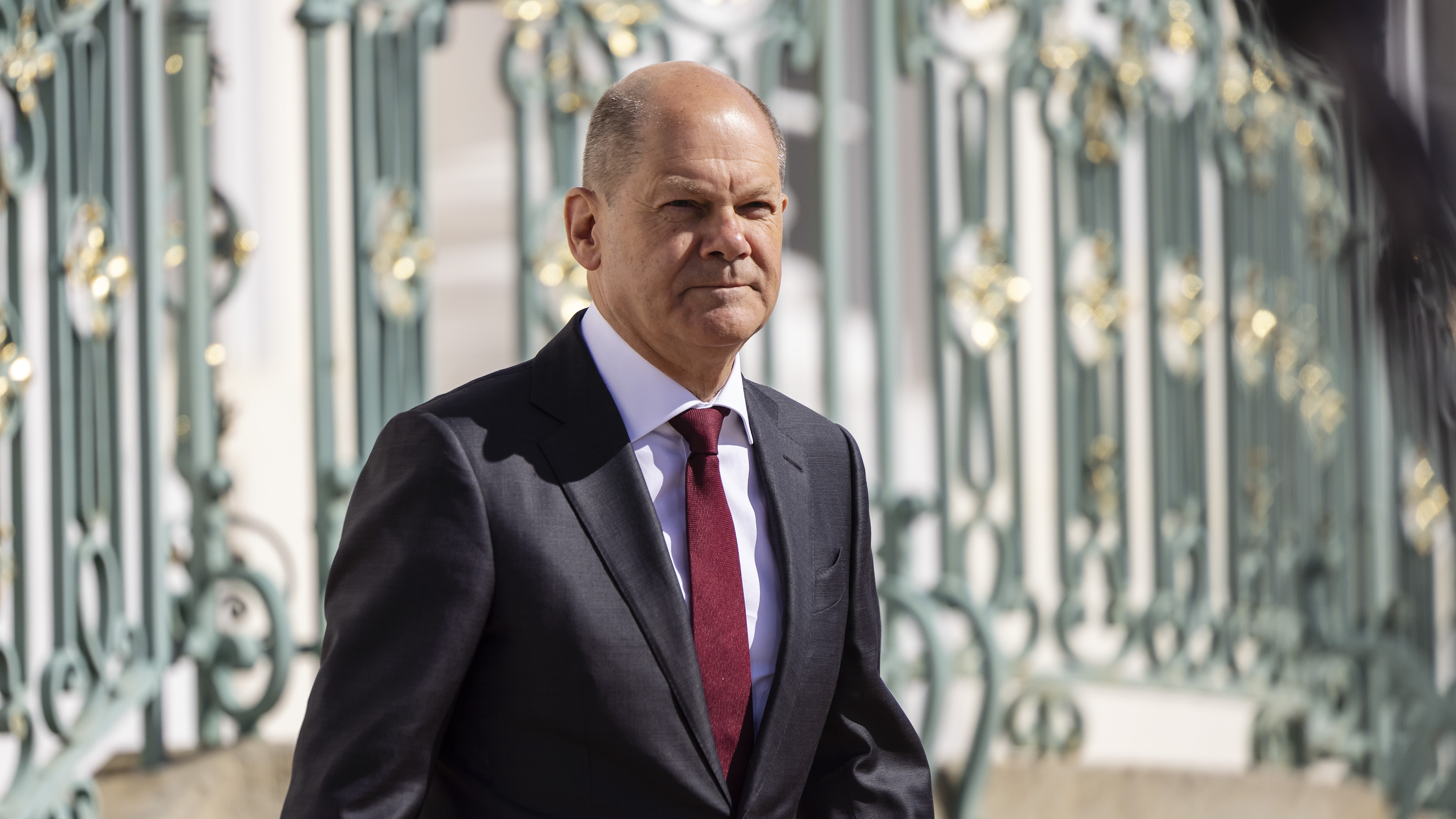German chancellor in high-stakes China visit
Western allies will closely watch Olaf Scholz’s meetings in Beijing

A free daily email with the biggest news stories of the day – and the best features from TheWeek.com
You are now subscribed
Your newsletter sign-up was successful
The German chancellor is in the spotlight as he prepares to make a high-stakes visit to China – the first time a G7 leader has visited the country since the start of the Covid pandemic.
China was Germany’s top trading partner over the last six years, “with bilateral trade reaching $245bn last year”, said Axios. Around half of German industrial firms are heavily reliant on China but there is mounting concern in the West about Beijing’s trade practices, human rights record and territorial ambitions.
Therefore Olaf Scholz’s visit, which starts tomorrow, will be “closely watched for clues on how serious Germany is about reducing its economic reliance on Asia’s rising superpower” and “confronting its Communist leadership”, said Reuters.
The Week
Escape your echo chamber. Get the facts behind the news, plus analysis from multiple perspectives.

Sign up for The Week's Free Newsletters
From our morning news briefing to a weekly Good News Newsletter, get the best of The Week delivered directly to your inbox.
From our morning news briefing to a weekly Good News Newsletter, get the best of The Week delivered directly to your inbox.
The trip “could send a confusing signal about how Europe’s largest economy plans to deal with Beijing”, said Axios, especially as other EU countries “increasingly toughen their stances on China”.
Andrew Small, from the German Marshall Fund, told Axios that Scholz is “specifically trying to maintain a certain traditional framework and economic ties” with Beijing, “in the teeth of pretty sweeping opposition from… the public, most of his coalition and increasingly other parts of Europe as well”.
Meanwhile, Scholz is trying to present a determined and robust front. “We don’t want to decouple from China”, he wrote for Politico, but Berlin “can’t be overreliant”. He insisted that “we will seek cooperation where it lies in our mutual interest, but we will not ignore controversies either”.
Last December, Scholz said that “we need to base our China policy on the China we find in reality”, and vowed to pursue “German and European interests” with “great self-confidence”.
A free daily email with the biggest news stories of the day – and the best features from TheWeek.com
But Thorsten Benner, co-founder and director of the Global Public Policy Institute in Berlin, argued on Foreign Policy that he “shows very little of this realism and self-confidence” as he prepares for the visit.
Chas Newkey-Burden has been part of The Week Digital team for more than a decade and a journalist for 25 years, starting out on the irreverent football weekly 90 Minutes, before moving to lifestyle magazines Loaded and Attitude. He was a columnist for The Big Issue and landed a world exclusive with David Beckham that became the weekly magazine’s bestselling issue. He now writes regularly for The Guardian, The Telegraph, The Independent, Metro, FourFourTwo and the i new site. He is also the author of a number of non-fiction books.
-
 The week’s best photos
The week’s best photosIn Pictures An explosive meal, a carnival of joy, and more
-
 The ‘ravenous’ demand for Cornish minerals
The ‘ravenous’ demand for Cornish mineralsUnder the Radar Growing need for critical minerals to power tech has intensified ‘appetite’ for lithium, which could be a ‘huge boon’ for local economy
-
 Why are election experts taking Trump’s midterm threats seriously?
Why are election experts taking Trump’s midterm threats seriously?IN THE SPOTLIGHT As the president muses about polling place deployments and a centralized electoral system aimed at one-party control, lawmakers are taking this administration at its word
-
 Epstein files topple law CEO, roil UK government
Epstein files topple law CEO, roil UK governmentSpeed Read Peter Mandelson, Britain’s former ambassador to the US, is caught up in the scandal
-
 Iran and US prepare to meet after skirmishes
Iran and US prepare to meet after skirmishesSpeed Read The incident comes amid heightened tensions in the Middle East
-
 Israel retrieves final hostage’s body from Gaza
Israel retrieves final hostage’s body from GazaSpeed Read The 24-year-old police officer was killed during the initial Hamas attack
-
 China’s Xi targets top general in growing purge
China’s Xi targets top general in growing purgeSpeed Read Zhang Youxia is being investigated over ‘grave violations’ of the law
-
 Panama and Canada are negotiating over a crucial copper mine
Panama and Canada are negotiating over a crucial copper mineIn the Spotlight Panama is set to make a final decision on the mine this summer
-
 Why Greenland’s natural resources are nearly impossible to mine
Why Greenland’s natural resources are nearly impossible to mineThe Explainer The country’s natural landscape makes the task extremely difficult
-
 Iran cuts internet as protests escalate
Iran cuts internet as protests escalateSpeed Reada Government buildings across the country have been set on fire
-
 US nabs ‘shadow’ tanker claimed by Russia
US nabs ‘shadow’ tanker claimed by RussiaSpeed Read The ship was one of two vessels seized by the US military